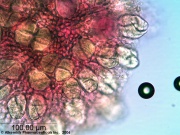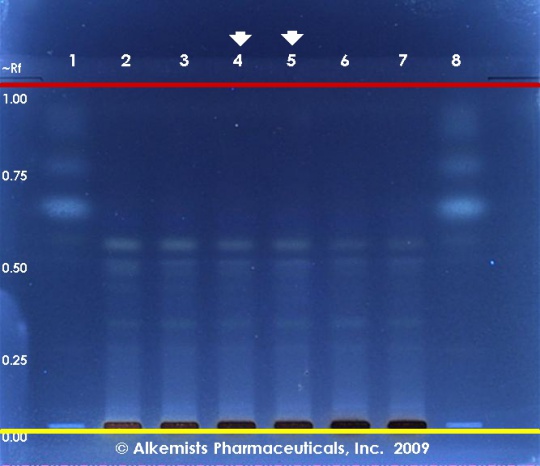Palmaria palmata (seaweed)
Contents |
Nomenclature
Palmaria palmata (L.) Kuntze Palmariaceae
Syn. Rhodymenia palmata (L.) Grev.
Standardized common name (English): dulse
Botanical Voucher Specimen
Organoleptic Characteristics
Macroscopic Characteristics
Microscopic Characteristics
|
High Performance Thin Layer Chromatographic Identification
|
Dulse (seaweed) (Palmaria palmata) Lane Assignments Lanes, from left to right (Track, Volume, Sample):
Reference materials used here have been authenticated by macroscopic, microscopic &/or TLC studies according to the reference source cited below held at Alkemists Laboratories, Costa Mesa, CA. Stationary Phase Silica gel 60, F254, 10 x 10 cm HPTLC plates Mobile Phase cyclohexane: ethyl acetate: propionic acid [6/3.8/0.2] Sample Preparation Method 0.3 g + 3 ml 80% CH3OH sonicated + heated @ 50° C ~ 1 hr Detection Method 10% Ethanolic H2SO4 ->115° C 15 min -> UV 365 nm Reference see Adapted from Pharmacognosy Phytochemistry Medicinal Plants, Bruneton, J. 1995
|
Supplementary Information
Sources
- ↑ Elan M. Sudberg, Alkemist Laboratories http://www.alkemist.com
- ↑ Elan M. Sudberg, Alkemist Laboratories http://www.alkemist.com


